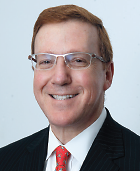Saul Levin, M.D., to Be Next APA Medical Director
Abstract
APA prepares for a major transition as James H. Scully Jr., M.D., will retire this fall, and his successor takes over at a time of multiple changes in psychiatry.
The APA Board of Trustees announced that it has chosen Saul Levin, M.D., M.P.A., to be the Association’s next medical director/CEO. Levin will replace James H. Scully Jr., M.D., who will step down when his contract is up later this year. Scully has served in that post for the last 12 years.

Saul Levin, M.D.
Levin has served on several APA components including the Board of APA’s political action committee (APAPAC), the Scientific Program Committee, and as a consultant to the Finance and Budget Committee. He has also been a member of the APA delegation to the AMA.
Levin currently is the interim director of the District of Columbia Department of Health and chair of the D.C. Essential Health Benefits Package Subcommitee of the Health Benefit Exchange Authority. He has also served as senior deputy director of the District of Columbia Addiction and Recovery Administration. Before taking on his positions in Washington, D.C., Levin was vice president for science, medicine, and public health at the AMA.
Commenting on Levin’s selection as medical director, APA President-elect Jeffrey Lieberman, M.D., said, “Saul’s expertise in electronic health information exchanges and implementation of the Affordable Care Act and meaningful-use requirements, as well as his commitment to mental health parity and proven leadership of large organizations, will be extremely important to APA and its members as we adapt to and continue our leadership role in health care reform.” Scully said that Levin “brings extraordinary intelligence, vision, and great energy to the challenges ahead for our profession. I look forward to working together with him as we transition to the new leadership.”
Levin will become CEO-designate in mid-July and will become medical director and CEO when Scully retires in the fall.
Washington, D.C., Mayor Vincent Gray also commented on Levin’s appointment. “While this is a great loss for the District government, it is a great gain for the American Psychiatric Association,” Gray said. “Dr. Levin has done an exemplary job leading [the Department of Health] in this interim period, and I wish him the best in his future endeavors and thank him for his good work for us.”
In an interview with Psychiatric News after his appointment was announced, Levin said he was “honored and humbled to be chosen to lead the professional home of psychiatry, especially during this time when the field is changing as a result of the Affordable Care Act.” He added that he is “looking forward to working with the membership as well as with district-branch leaders, federal and state legislators, and other medical and mental health organizations to ensure that patients get high-quality care and better access to that care.”
He emphasized that as a resident at the University of California, Davis, in the 1980s, he quickly recognized “what an amazing and effective organization APA was” and began his involvement in APA at that time. In his new role at APA, he emphasized that he relishes the opportunity to help ensure that psychiatrists have the best-possible practice environment and are reimbursed equitably for the valuable work they do.
He stated that he plans to engage in extensive dialogue with APA members in clinical practice, academia, research, and administration to make sure APA is providing them with the benefits that are most important to them and to reach out to nonmember psychiatrists to explain how much APA can help them in their careers. ■



